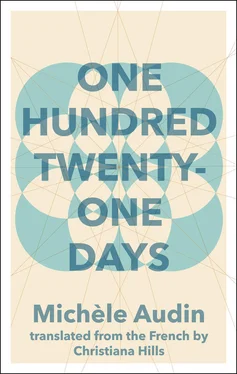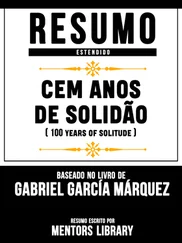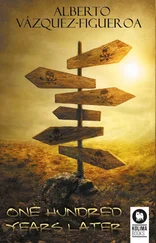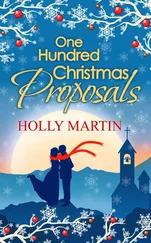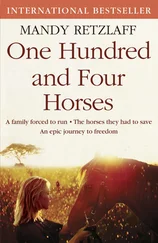
Here’s where I should probably say something about the differences created in the translation (which some might call “losses,” but “differences” is a bit less negative, don’t you think?). As Oulipian readers may have guessed, there are a few hidden constraints tucked into certain points of this book, such as the alphabetical list in chapter x and the parenthetical vocalic restrictions in chapter VII. 6Without going into terrible detail (no one wants to read a long translator’s note), let it suffice to say that I had to radically transform these passages in English in order to maintain the constraints. For me, such transformations were the most thrilling part of the entire project.
I made sure to ask Michèle for her permission to mention these constraints, since revealing constraints is a point of contention within the Oulipo.
Some of the other differences gained in my translation came about through the book’s rich intertextuality — all those quotations from and allusions to other literary works. As a general rule for the quotations from foreign-language texts, I chose to use published translations where possible. While this is the usual practice for quoting works in translation, it also celebrates the work of previous translators and their contributions to the ever-changing intertextual network that is World Literature. 7
You will find a list of these translators in the Supernumerary Note, which follows this note.
A familiar face cropped up in all this intertextuality in the references to two texts by Rudyard Kipling: his short story, “The Elephant’s Child,” and his poem, “If.” Readers can decide for themselves how much or how little chapter I parodies Kipling’s story — for me, it was a matter of inserting certain words and phrases from the story into my translation, which certainly created a different effect compared to if I had simply translated the chapter without looking at Kipling’s text.
I also adopted a few strategies in other parts of the text to manipulate its heteroglossic nature, following what I saw as the text’s own logic. For example, I rendered Harold Smith’s letter in chapter x in British English, which seemed necessary given his Oxonian origin. I also followed the text’s logic in chapter v when I wanted to add a footnote to explain an acronym; while footnotes are usually discouraged in literary translation, in this case my footnote blends right in with the 46 other footnotes in the chapter. As for the German words and phrases scattered throughout the novel, I chose to leave those alone, since translations have already been provided in the text itself. 8
In other words, no annoying translator’s footnotes required.

Before you close this book, please allow me to thank Michèle Audin, for her humility and openness to collaborate with me throughout this journey; David Dollenmayer, for his generosity in assisting my understanding of the Brecht quotations; my mentors Emmanuelle Ertel and Alyson Waters, for their infectious devotion to the art of literary translation; my parents, for their everlasting encouragement 9; and my husband and best friend Jonathan, for his steadfast love and patience, not least in listening to my muddled attempts to express my translation struggles at the end of a long day’s work, reading through my entire manuscript when I was sick of editing it, and coming up with a solution for one of the trickiest parts of this text. 10
And because you should honor your parents if you want to live a long life (Ex 20:12). No telling which one, but a choice few of you already know.
Christiana Hills
Binghamton, NY
SUPERNUMERARY NOTE OF SUPER TRANSLATORS
I would also like to thank the following translators for their exceptional work which, in various ways, found a place in this translation:
ALAN BANCROFT ( Poems of St Thérèse of Lisieux , St. Thérèse of Lisieux), ANN HOBART (“Should We Pardon Them?”, Vladimir Jankélévitch), ANTHEA BELL ( On the Natural History of Destruction , W. G. Sebald), ARRAND PARSONS & LOLA RAND ( The Damnation of Faust (libretto), Hector Berlioz & Almire Gandonière), C. K. SCOTT MONCRIEFF ( The Charterhouse of Parma , Stendhal), CAROLYN FORCHÉ (“The Night Watchman of Pont-au-Change,” Robert Desnos), DANIEL LEVIN BECKER ( Painting at Dora , Francois Le Lionnais), DAVID DOLLENMAYER ( Conversations in Exile (uncredited), Bertolt Brecht), DAVID LUKE ( Faust , Johann Wolfgang von Goethe), GEORGE MUSGRAVE ( Inferno , Dante Alighieri), HENRY WADSWORTH LONGFELLOW ( Inferno , Dante Alighieri), KEITH WALDROP (“The Swan,” Charles Baudelaire), RAYMOND ROSENTHAL ( The Drowned and the Saved , Primo Levi), RICHARD HOWARD ( Force of Circumstance , Simone de Beauvoir), SAMUEL BECKETT ( The Lost Ones , Samuel Beckett), STUART WOOLF ( If This Is A Man , Primo Levi).
Thank you all for your support. We do this for you, and could not do it without you.
DEAR READERS,
Deep Vellum Publishing is a 501c3 nonprofit literary arts organization founded in 2013 with the threefold mission to publish international literature in English translation; to foster the art and craft of translation; and to build a more vibrant book culture in Dallas and beyond. We seek out literary works of lasting cultural value that both build bridges with foreign cultures and expand our understanding of what literature is and what meaningful impact literature can have in our lives.
Operating as a nonprofit means that we rely on the generosity of tax-deductible donations from individual donors, cultural organizations, government institutions, and foundations to provide a of our operational budget in addition to book sales. Deep Vellum offers multiple donor levels, including the LIGA DE ORO and the LIGA DEL SIGLO. The generosity of donors at every level allows us to pursue an ambitious growth strategy to connect readers with the best works of literature and increase our understanding of the world. Donors at various levels receive customized benefits for their donations, including books and Deep Vellum merchandise, invitations to special events, and named recognition in each book and on our website.
We also rely on subscriptions from readers like you to provide an invaluable ongoing investment in Deep Vellum that demonstrates a commitment to our editorial vision and mission. Subscribers are the bedrock of our support as we grow the readership for these amazing works of literature from every corner of the world. The more subscribers we have, the more we can demonstrate to potential donors and bookstores alike the diverse support we receive and how we use it to grow our mission in ever-new, ever-innovative ways.
From our offices and event space in the historic cultural district of Deep Ellum in central Dallas, we organize and host literary programming such as author readings, translator workshops, creative writing classes, spoken word performances, and interdisciplinary arts events for writers, translators, and artists from across the world. Our goal is to enrich and connect the world through the power of the written and spoken word, and we have been recognized for our efforts by being named one of the “Five Small Presses Changing the Face of the Industry” by Flavorwire and honored as Dallas’s Best Publisher by D Magazine .
If you would like to get involved with Deep Vellum as a donor, subscriber, or volunteer, please contact us at deepvellum.org. We would love to hear from you.
Читать дальше
